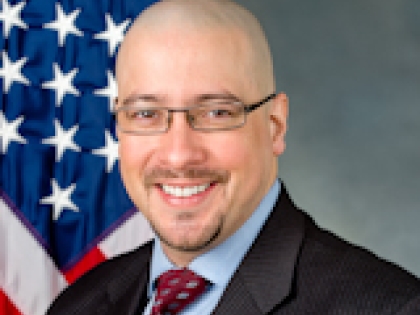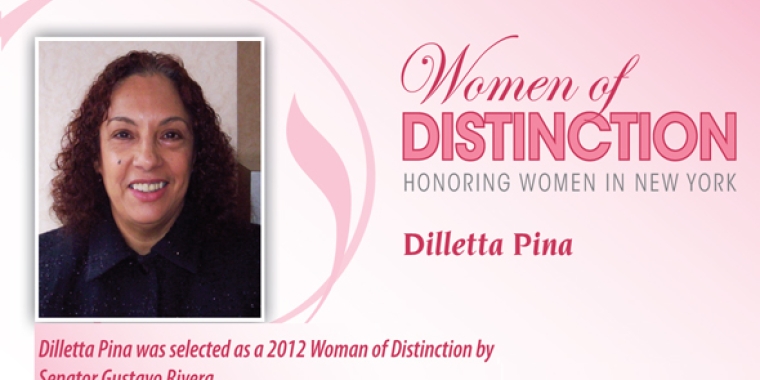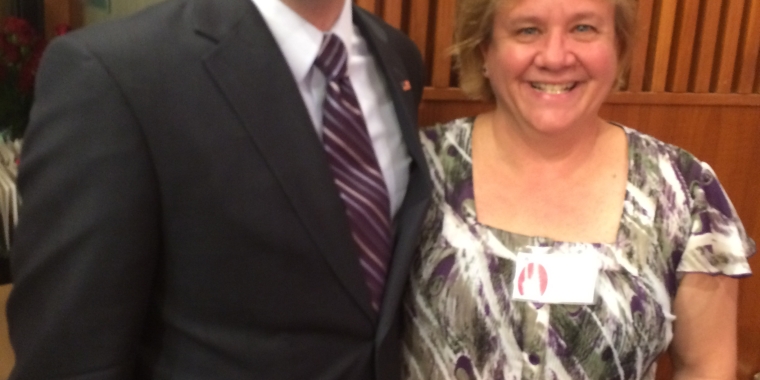
State Senator Gustavo Rivera Calls on the Department of Health to Develop a Drug Assistance Demonstration Program to Provide Affordable Insulin to Vulnerable New Yorkers
September 5, 2019
This year, Senator Rivera introduced bill S.6492 that would develop a program to assist patients who need insulin. It passed the New York State Senate unanimously
According to the American Diabetes Association, an estimated 2 million New Yorkers have diabetes and an estimated $21 billion is spent in New York on diagnosed diabetes costs each year
(Bronx, NY) - Today, State Senator Gustavo Rivera, Chair of the Senate Health Committee, sent a letter to NYS Department of Health (NYSDOH) Commissioner Howard Zucker requesting that the agency develops a demonstration program to provide diabetes patients who are financially and medically in need access to insulin and other life-saving prescriptions. The timely development of the structure and financing of such a program by the Department of Health would help the Legislature and Governor consider its implementation during the 2020-2021 budget negotiations.
During the most recent legislative session, Senator Rivera introduced bill S.6492 to develop such a program. This bill also includes other initiatives such as emergency refills for expired insulin prescriptions and a reasonable cap on insurance cost-sharing. The bill passed the State Senate unanimously.
"The extremely high cost of insulin is causing New Yorkers to forgo life-saving medication and endanger their lives. We are simply requesting that the Department of Health provide the framework we need to implement a drug assistance demonstration program during next year's budget," said State Senator Gustavo Rivera, Chair of the Senate Health Committee. "We must act swiftly as this public health crisis continues to affect the health and well-being of millions of insured, underinsured, and uninsured New Yorkers yearly while costing our State billions."
Every year, diagnosed diabetes costs an estimated $21 billion in New York according to the American Diabetes Association. Further, New Yorkers with diabetes face medical expenses approximately 2.3 times higher than those who do not have diabetes. This follows a worrisome trend of dramatic increases in the price of insulin nationally. The cost of the four most popular types of this life-saving medication have tripled over the last decade, and out-of-pocket costs have doubled. These price hikes are not only affecting those who are uninsured and underinsured, but they are also affecting those with health insurance who experience exorbitant cost sharing such as high deductibles and co-payments.
"For people with type 1 diabetes and some type 2 patients, insulin is as necessary as oxygen. However, the list-price of the drug has risen 1123% since 1996 (source: Truven Health Analytics). This has led many New Yorkers - regardless of their insurance status - to have to choose between paying for their rent, food and rationing this life-saving medicine. The proposed drug assistance program would provide an essential life-saving safety-net for people with diabetes who are directly endangered by this unjust economic burden while patients and legislators continue to fight for long-term solutions to put an end to the deaths and suffering," said T1International New York #insulin4all Chapter.
According to the American Diabetes Association, 2.1 million New Yorkers or 12.5 percent of the state's population suffer from diabetes. In addition, more than 5 million New Yorkers have prediabetes with blood glucose levels higher than normal, but not high enough to be considered diabetic. The impact of diabetes in Hispanic and African-American communities is even more staggering. For instance, of those living in New York City and diagnosed with diabetes, 28 percent were Latino and 31 percent were African Americans.
In response to this public health crisis, Senator Rivera is calling for this proposed drug assistance demonstration program to be modeled after the highly successful HIV/AIDS drug assistance program implemented in New York State in the 1980s to fight that epidemic. That program helped patients with incomes up to 500% of the federal poverty level to have access to their life saving medications. If implemented, New York could move the national conversation forward by implementing a similar program for those dependent on insulin.
related legislation
Share this Article or Press Release
Newsroom
Go to NewsroomLaTanga Blair
May 18, 2012

Dilletta Pina
May 15, 2012

